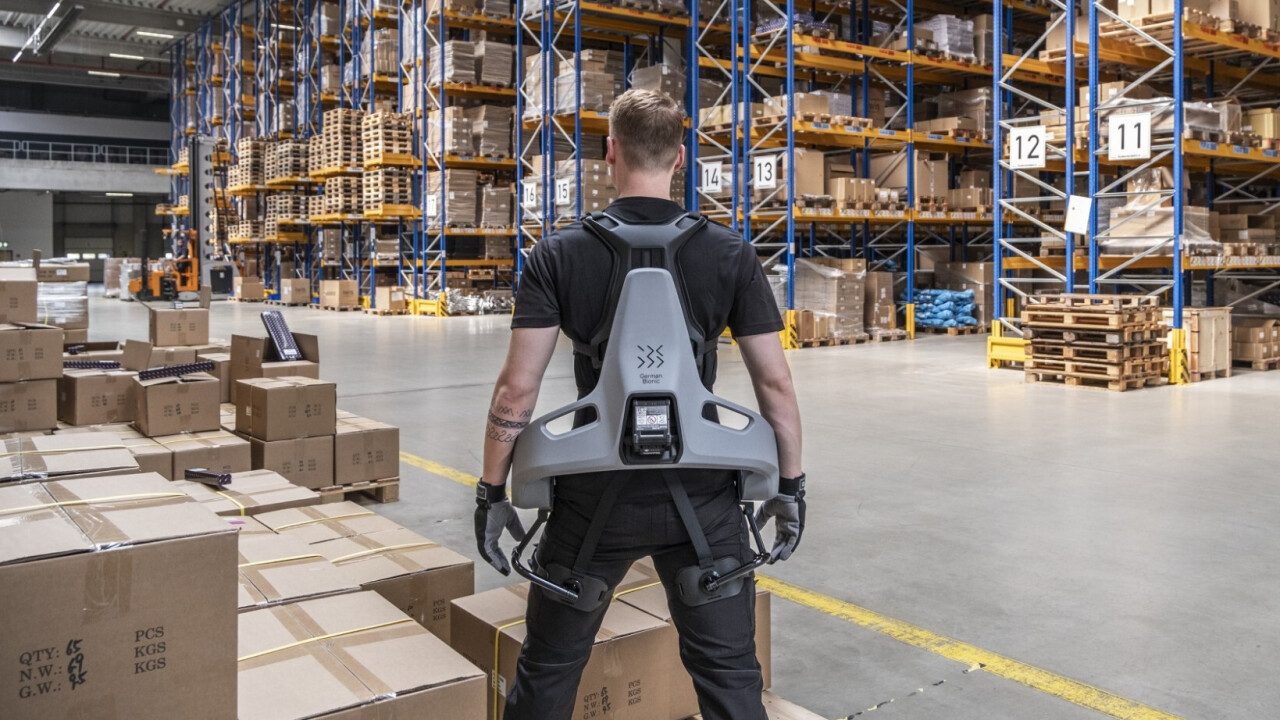German Bionic has unveiled its latest wearable exoskeleton — and it comes equipped with an AI brain.
Dubbed Exia, the robotic suit offers up to 38kg of dynamic assistance to make heavy lifting easier for humans. That means an item weighing 30kg feels more like 5 to the lifter's lower back. But what really sets Exia apart from its predecessors is its capacity to adapt and learn.
German Bionic claims Exia is the world's first exoskeleton powered by augmented AI, a type of artificial intelligence designed to enhance human intelligence.
Over time, each suit is designed to get better and better at anticipating the movements of the individual wearing it. This allows the exoskeleton to provide the most amount of physical support at the right time, the company said. Think of it as muscle memory, but for machines.
Armin G. Schmidt, CEO and co-founder of German Bionic, called it a “breakthrough” in human augmentation, which refers to people using tech to enhance or extend their physical or cognitive abilities — think Tony Stark in Iron Man.
“Exia doesn't merely respond or even just think – it actually learns,” said Schmidt. “With every movement, it grows alongside its user, continuously adapting and evolving to meet the demands of the person and the job at hand.”
German Bionic targets its suits at physically demanding jobs, such as in construction, logistics, or warehouse packing. Here's how it works.
A worker wears Exia like a lightweight backpack — the suit itself only weighs around 7kg. As they begin lifting, walking, or bending, Exia's sensors detect motion and automatically activate its adaptive lift engine. Using battery-powered motors and advanced control systems, the suit enhances each movement, boosting the person's strength. At the end of the shift, the worker docks the suit to recharge.
“When you put on the device it can feel strange and heavy at first,” Norma Steller, CPO at German Bionic, previously told TNW. “But once the motors kick in it feels amazing. You feel strong, tall, and capable — it gives you this kind of feeling.”
The units also collect data on your movements. The feature is intended to flag behaviours that increase the risk of injury, such as excessive repetition and improper lifting or twisting movements.
Founded in 2017, German Bionics is one of many companies around the world working on human augmentation. Others include US-based Ekso Bionics, which has developed an exoskeleton for construction workers focused on supporting the shoulders; French startup Wundercraft, which has developed a lower-body exoskeleton to help patients recover from spinal cord injuries; and Spain's Marsi Bionics, which has launched a gait exoskeleton for children with neuromuscular diseases.
German Bionics' Exia is now available in North America, Europe and the UK. The company told TNW the “price is variable, depending on requirements, the number of units being ordered, and what data the customer wants to track.”
Want to discover the next big thing in tech? Then take a trip to TNW Conference, where thousands of founders, investors, and corporate innovators will share their ideas. The event takes place on June 19–20 in Amsterdam and tickets are on sale now. Use the code TNWXMEDIA2025 at the checkout to get 30% off.
